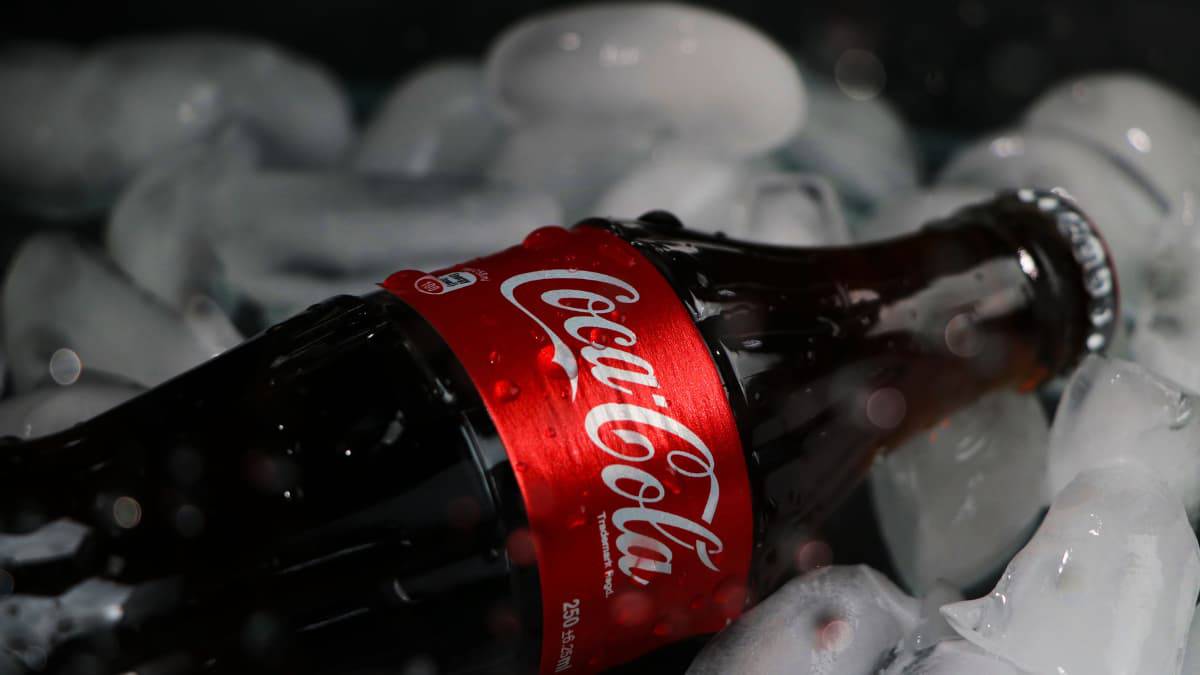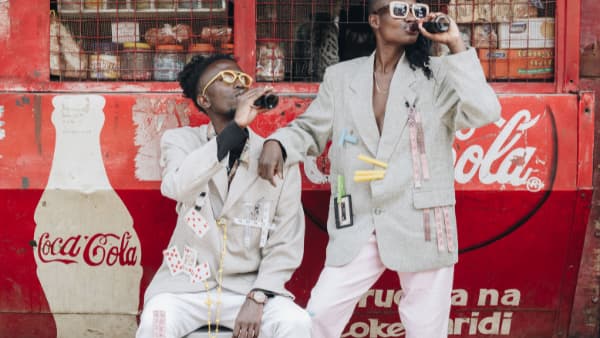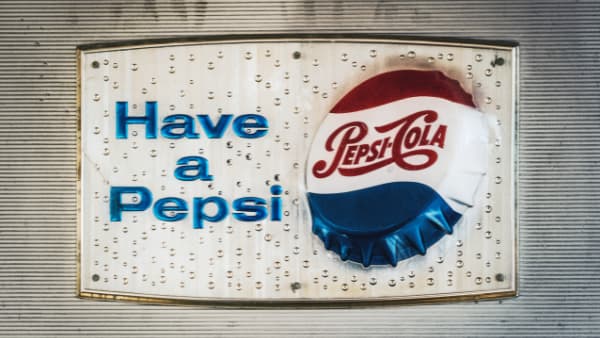How Much Caffeine In Coke?
Coke is the most popular soft drink in over 200 countries. But what’s all the buzz about? In addition to distinct flavors, Coke drinks feature a significant amount of caffeine.
If you’re trying to monitor how much caffeine you drink, keep reading.
In this article, I’ll compare Coke caffeine levels to those found in similar carbonated drinks as well as espresso, coffee drinks, and energy drinks.
Plus, I’ll highlight the many caffeine-free drink options currently available.

Coca-Cola History
Pharmacist John S. Pemberton developed the original formula for Coca-Cola in 1886. Pemberton envisioned the drink as a “cure-all” tonic.
The original recipe used kola nuts and coca leaves. Both ingredients acted as stimulants. So it’s not surprising that Coke was known as the original energy drink when it was launched.
Kola nuts naturally contain caffeine. Coca leaves, meanwhile, are best known as the source of cocaine.
The current Coke formula forgoes coca leaves. But it’s unknown whether the soft drink company still derives caffeine from kola nuts. Many speculators believe that the company’s drinks now use an artificial stimulant to mimic the properties of a kola nut.
Caffeine In Coke
Coca-Cola claims that the world consumes over 1.9 billion servings of its drinks every day, making it one of the most ubiquitous products in modern-day life.
But the recipe of the company’s flagship drink remains a mystery. (Same goes for Diet Coke.) Since the recipe is top secret, it is impossible to identify the exact source of caffeine in this popular drink.
Thanks to FDA regulations, we can glean some facts from the nutrition information printed on Coke cans and bottles.
Although now absent of cocaine, this label still includes infamously high sugar levels. But for now, let’s take a look at caffeine.
A 12 oz can of regular Coke contains 34 mg of caffeine.
The same sized can of Coke Zero also contains 34 mg. But Diet Coke contains more caffeine at 46 mg per 12 oz can.

Coke Caffeine Content VS Other Sodas
When comparing Coke to other drinks, the obvious place to start is with rival company Pepsi.
A 12 oz can of regular Pepsi contains 38 mg of caffeine. In other words, 4 mg more than the same amount in regular Coke.
However, a Diet Pepsi contains a smaller amount of caffeine than a Diet Coke – 35 mg vs 46 mg respectively.
Dr. Pepper also has higher levels of caffeine, offering 41 mg per 12 oz drink.
Root beer usually doesn’t include caffeine, with one notable exception. Owned by Coca-Cola, Barq’s Root Beer contains 22 mg per 12 oz.
How Much Caffeine In Coke VS Coffee?
Although a secret, the Coke formula is highly standardized. This regulation means that caffeine levels stay the same every time you crack open a can.
Measuring caffeination in coffee drinks is not so simple.
That’s because coffee doesn’t adhere to a strict recipe with a set list of ingredients. Factors such as the type and roast of the coffee beans impact the final caffeination of a drink.
Plus, there are many different ways to brew coffee. Whether you’re a fan of filter coffee, espresso, or instant coffee, the brew method will affect the amount of caffeine per drink.
These variances make it difficult to compare the caffeine in Coke to the same amount of brewed coffee drinks. But let’s give it a try.
An average 12 oz drip coffee contains about 109 mg of caffeine. At the same size, a double shot americano will contain about 125 mg of caffeine. (A single shot of espresso typically contains 75 mg of caffeine.)
Instant coffee usually contains less caffeine than other coffee beverages. A 12 oz instant coffee gives you about 88.5 mg of caffeine.
But again, these numbers can vary wildly. Look no further than Starbucks.
In many ways, Starbucks is to coffee what Coke is to caffeinated soft drinks. And when it comes to leading the nation in caffeination, Starbucks coffee is similarly staggering.
At Starbucks, a Tall (aka 12 oz) drip coffee gives the drinker 260 mg of caffeine. You’d have to drink over seven cans of Coke to get the same buzz.
Regardless of who brewed your coffee, there’s one key takeaway when comparing Coke vs a coffee drink. Coffee contains much higher amounts of caffeine than Coke.
Another difference to keep in mind? Caffeine-free Coke is a drink that lives up to its name. Decaffeinated coffee, meanwhile, still contains a small amount of caffeine.

How Much Caffeine In Coke VS Tea?
Energy guzzlers tend to regard coffee as the caffeination king. But even if flavorsome leaves can’t rival espresso beans, tea still packs a punch.
The amount of caffeine in tea depends on several factors: blend, steep time, and water temperature.
Black tea blends are the most caffeinated at roughly 75 mg per 12 oz cup. A 12 oz cup of green tea contains around 40 mg. Oolong tea contains about 55 mg, white tea 42 mg.
The caffeine difference between tea and Coke isn’t as significant as the coffee comparison. But black, green, oolong, and white teas nevertheless contain higher levels than the carbonated drink.
Herbal teas such as ginger, rooibos, and peppermint are naturally caffeine free. Craving the comfort of a hot beverage without the energy rush? Swap the decaffeinated coffee for caffeine-free camomile.
While trying to reduce your intake, it’s also important to remember that many foods contain caffeine too!
What Soda Has The Most Caffeine Content?
Coke might lead the world in sales. But when it comes to caffeination, other drinks outrank the fizzy drink behemoth.
The top award goes to Mountain Dew. At 54 mg per 12 oz can, “Mtn Dew” contains almost 75% more caffeine than the same amount of Coke.
Heads up: you’ll likely find energy drinks in the same fridge as soda. But energy drinks contain much higher caffeine levels. Containing 80 mg caffeine, a can of Red Bull has more than twice the kick of a Coke.
Coke did try to launch an energy drink featuring 114 mg of caffeine, but it has since gone off the market.
What Soda Has The Least Amount Of Caffeine?
Any sweetened, carbonated drink might be classified as a soda.
The process of carbonating beverages does not produce caffeine. And most flavoring does not naturally contain caffeine. So, soda manufacturers must add caffeine, either synthetically or naturally.
In fact, many of the US’s most popular soda drinks are caffeine free. (And many manufacturers offer caffeine-free versions.)
Lemon-lime flavored sodas such as Sprite, 7-Up, and Sierra Mist usually do not contain any caffeine. Nor do other soft drinks that rely on fruit flavors, such as Fanta orange or grape.
Plus, Coca-Cola does offer caffeine-free versions of Coke, Diet Coke, and Coke Zero.
Wrapping Up: How Much Caffeine In A Can Of Coke
A 12 oz can of regular Coke contains 34 mg of caffeine. If you’re drinking Diet Coke, that 12 oz can contains 46 mg of caffeine.
But whether you’re drinking regular or Diet Coke, it will give you less caffeine than a coffee or energy drink.
For the most reliable energy boost, stick with coffee. A 12 oz drip coffee will give you three times the amount of caffeine as a can of Coke. And much less sugar.

